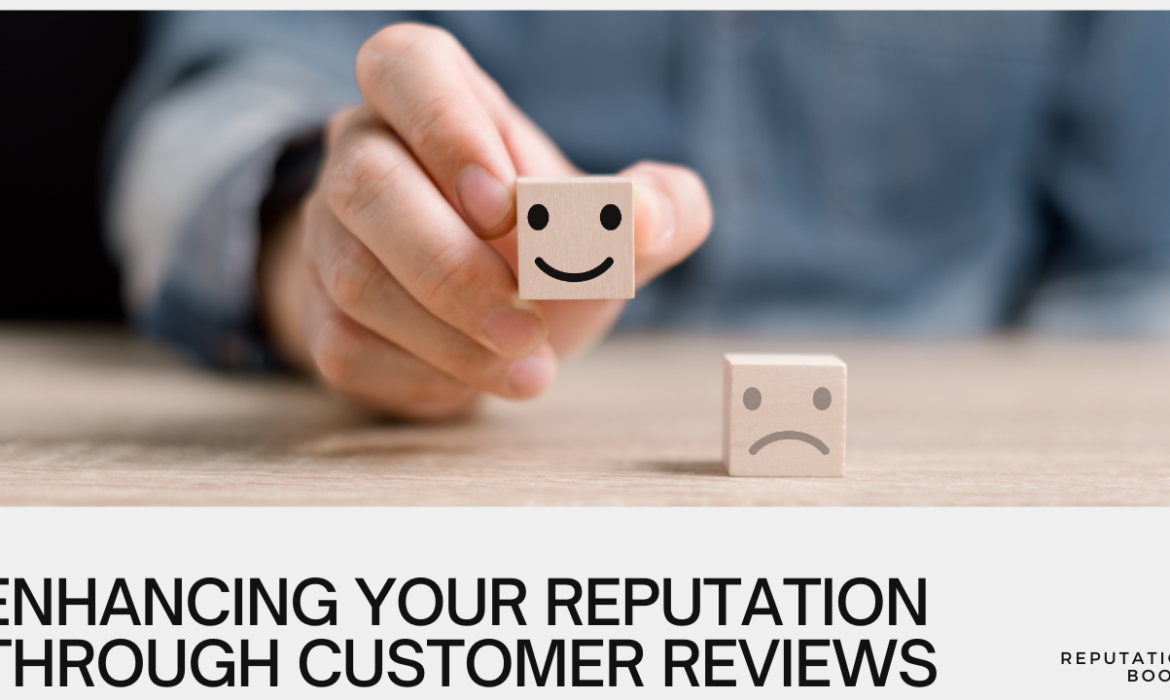081-4797-7173
Imagine this: a potential customer lands on your website, ready to make a purchase. But before they click “buy,” they scroll down to read the reviews. What they find there could seal the deal—or send them straight to a competitor.
Customer reviews are more than just comments on a screen; they’re the lifeblood of your online reputation. In a world where 93% of consumers say online reviews influence their buying decisions, ignoring them isn’t an option.
But here’s the thing: reviews aren’t just about ratings. They’re a two-way street. How you respond to feedback—both positive and negative—can either build trust or chip away at your credibility.
In this post, we’ll break down the real impact of customer reviews on your online reputation, why they’re a powerful tool for growth, and how you can use them to not just survive, but thrive in the digital marketplace.
Let’s get into it.
Why Customer Reviews Matter in the Digital Era
The rise of ecommerce and social media has shifted the balance of power in marketing from businesses to consumers. Modern customers rely heavily on reviews to make informed decisions, with studies showing that 93% of consumers read online reviews before buying a product or service.
Reviews serve as a form of social proof evidence from real customers that a business delivers on its promises. Positive reviews can attract new customers, while negative reviews, if not addressed, can tarnish a brand’s image. Therefore, managing customer reviews is essential for maintaining and enhancing a brand’s online reputation.
The Benefits of Customer Reviews in Building Online Reputation
1. Boosting Credibility and Trust
Customer reviews build trust among potential buyers by offering genuine feedback from real users. A business with numerous positive reviews appears more credible and trustworthy than one with little or no feedback.
For example, when a customer sees five-star reviews praising a product’s quality and customer service, they are more likely to feel confident about making a purchase. Reviews act as an unbiased validation of your offerings, which is particularly valuable in competitive markets.
2. Enhancing Search Engine Optimization (SEO)
Customer reviews contribute significantly to local SEO rankings. Search engines like Google prioritize businesses with frequent and positive reviews, as they view them as more trustworthy and relevant.
For local businesses, reviews on platforms like Google My Business and Yelp help increase visibility in local search results. Including keywords in customer reviews can also improve your website’s ranking for those terms.
Example:
A restaurant with consistent 5 star reviews that mention “best Italian food in New York” is more likely to rank higher for related search queries.
3. Influencing Purchase Decisions
Customer reviews are a powerful factor in purchase decisions. A potential buyer is more likely to choose a product or service with numerous positive reviews over one with little feedback.
Positive reviews provide reassurance about the quality and reliability of a product, especially for high value or high risk purchases. Similarly, detailed reviews that address common questions or concerns help customers feel more informed and confident in their choice.
4. Providing Valuable Feedback for Improvement
Customer reviews are not just for potential buyers they’re also a goldmine of feedback for businesses. Reviews highlight areas where your business excels and where there’s room for improvement.
For instance,
if multiple reviews mention slow delivery times, it’s a signal to reassess your logistics. On the other hand, praise for exceptional customer service confirms what you’re doing right. Acting on customer feedback demonstrates that you value their opinions, which further strengthens loyalty and reputation.
5. Encouraging Customer Engagement
Responding to reviews both positive and negative shows that you’re attentive and value customer feedback. Engaging with reviewers helps humanize your brand and builds stronger connections with your audience.
When businesses thank customers for positive reviews, it reinforces goodwill. Addressing negative reviews professionally and constructively can turn dissatisfied customers into loyal advocates while demonstrating your commitment to improvement.
How to Leverage Customer Reviews for a Stronger Online Reputation
1. Encourage Customers to Leave Reviews
Actively ask satisfied customers to leave reviews on platforms like Google, Yelp, or Trustpilot.
Make the process simple and accessible by including direct links in follow up emails, on your website, or in your social media posts.
2. Respond to All Reviews
Acknowledge every review, whether positive or negative. Thank customers for their feedback and address any concerns with sincerity and professionalism. Quick and empathetic responses can turn negative experiences into positive ones.
Tip:
Avoid generic replies. Personalize your responses to show genuine interest in the customer’s experience.
3. Showcase Positive Reviews
Feature glowing reviews on your website, social media, and marketing materials.
Testimonials, case studies, and success stories are excellent ways to build trust with potential customers.
For example,
Displaying a carousel of customer testimonials on your homepage can create a strong first impression for visitors.
4. Use Reviews to Drive Content
Customer reviews can inspire blog posts, FAQs, or product descriptions.
For example,
if reviews frequently highlight a product feature, create content that emphasizes its benefits.
5. Monitor and Analyze Reviews Regularly
Track your reviews across multiple platforms to identify trends and insights. Use review management tools to streamline the process and stay on top of your online reputation.
Overcoming Challenges with Negative Reviews
Negative reviews are inevitable, but they don’t have to harm your reputation if managed effectively:
Respond Promptly:
Address the issue as soon as possible to demonstrate your commitment to customer satisfaction.
Stay Professional:
Avoid defensive or argumentative responses, even if the review is unfair.
Offer Solutions:
Provide a clear plan to resolve the issue, such as a refund, replacement, or apology.
Learn and Improve:
Treat negative reviews as opportunities for growth and use them to identify areas for improvement.
Case Study: The Power of Customer Reviews
Consider the case of an online clothing retailer. Initially, the brand struggled with low visibility and few repeat customers.
By implementing a customer review strategy encouraging feedback, responding to reviews, and showcasing testimonial they experienced significant growth.
Over time, their Google My Business profile gained hundreds of positive reviews, improving their local SEO rankings. Customers frequently cited their excellent customer service in reviews, which attracted new buyers and built trust.
Conclusion
Customer reviews are more than just feedback, they are a vital asset for building and maintaining a strong online reputation.
Positive reviews build trust, influence purchase decisions, and boost SEO rankings,
while negative reviews offer opportunities for improvement and engagement.
By actively encouraging, managing, and leveraging reviews, businesses can enhance their credibility, foster loyalty, and attract new customers. In an era where reputation is everything, prioritizing customer reviews is a strategy no business can afford to ignore.
0






